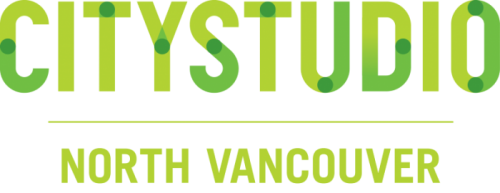
How might we design multi-functional micro-mobility facilities that benefit the community as a whole?
Term: Fall 2020
Department: School of Science, Technology, Engineering & Mathematics (STEM)
Course: APSC 140 (Engineering Design)
Instructor: Banda Logawa
Staff contact: Christopher French & Natalie Corbo (City of North Vancouver)
Students will develop and prototype innovative design solutions to help make micro-mobility facilities (e.g. ebike stations) more useful and beneficial to diverse members of the community, including people who might not use such micro-mobility devices. Each group will focus on a hypothetical location in the City of North Vancouver and propose technical design solutions that reflect the needs of stakeholders of that neighbourhood (e.g. residential versus commercial).
City Strategy and Goal Area:
- Official Community Plan 2014
- Goal 2.1 Prioritize walking, cycling, transit and goods movement over single-occupancy vehicles
- Objective 2.1.1 Invest in cycling and pedestrian networks and facilities to make these more attractive, safer, and convenient transportation choices for all ages and abilities with an aim to increase these ways of travelling over single-occupant vehicle use;
- Goal 2.1 Prioritize walking, cycling, transit and goods movement over single-occupancy vehicles
- Council Strategic Plan
- A Liveable City: Increase the proportion of residents with safe and convenient access to transit and active transportation infrastructure
- A Connected City: Explore innovative solutions to transportation challenges, and continue to integrate land use and transportation planning to support connectivity across the region




